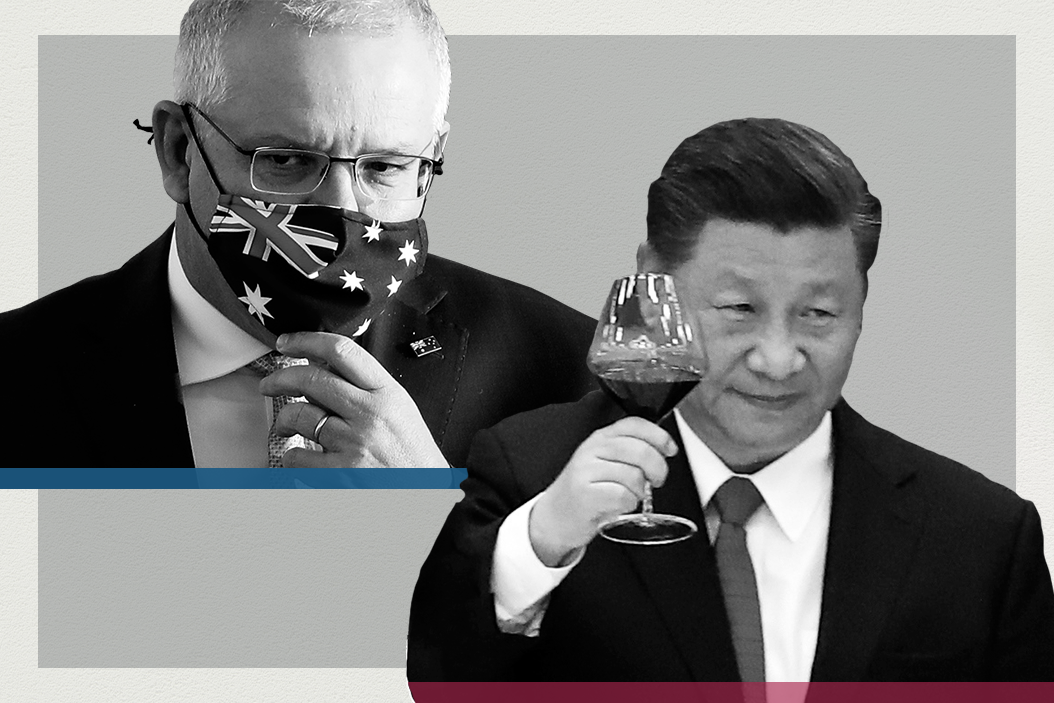What We’re Watching: China vs Australia, Kashmir talks, EU’s Putin FOMO
China-Australia trade row continues: In the newest installment of the deepening row between China and Australia, Beijing has launched a complaint against Canberra at the World Trade Organization over tariffs placed on three Chinese exports: wind towers, railway wheels and stainless-steel sinks. Australia says it was caught off-guard by China's suit — the tariffs have been in place since 2014, 2015, and 2019 — and that Beijing didn't go through the regular WTO channels nor pursue bilateral talks before filing the complaint. It's the latest move in a game of tit-for-tat: last year, Beijing slapped tariffs on Australian products like wine and barley, a massive blow to Australia's export-reliant economy. Since the Chinese crackdown on Australian wine, sales have fallen from AU$1.1 billion ($840 million) to just AU$20 million, prompting Australia to recently challenge Beijing's move at the WTO. China-Australia relations have become increasingly fraught over a range of issues including trade, Chinese spying, 5G, and Australia's call for a global probe into the origins of the pandemic.
Is India going to change tack on Kashmir? Leaders of pro-India political parties in Kashmir are meeting with Prime Minister Narendra Modi for the first time since India revoked Kashmir's autonomy almost two years ago. The talks are a sign that Modi may be open to partially restoring the special self-governing status of India's only Muslim-majority territory, which since August 2019 has been ruled directly from Delhi. But, why now? Foreign considerations play a big role. First, restoring Kashmir's autonomy would help to continue a wider India-Pakistan thaw. The two sides recently signed a ceasefire agreement in Kashmir, a territory that they've fought three wars over. Second, the looming US withdrawal from Afghanistan is making India nervous: if, as expected, the Taliban take power again, they could provide haven for Kashmiri separatists eager to attack India.
The EU has Putin FOMO: Joe Biden's summit with Vladimir Putin last week went well enough that now European leaders want to have a go of their own. French President Emmanuel Macron and German Chancellor Angela Merkel on Wednesday proposed a direct EU meeting with the Russian president for the first time in more than seven years, while also threatening more sanctions if Russia continues to challenge European interests and values. The EU is much closer, both geographically and economically, to Russia than the US is, so there's lots to talk about. But the proposal, which evidently blindsided other EU leaders, has exposed divisions within the bloc. Some EU member states — in particular perennial Russia-hawks Poland and the Baltic states — oppose giving Putin the pleasure of a meeting while Russia still occupies Crimea, harbors cybercriminals, spreads disinformation, and stifles dissent. Others, echoing Biden's reasoning, say it's better to speak directly and frankly than not. Can Merkel and Macron get enough of their fellow EU leaders to agree? Putin is watching, and so are we.
